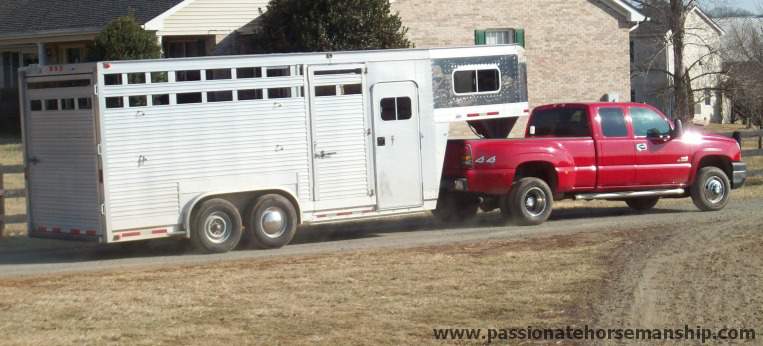 When traveling with your horse you’ll want to take all the precautions you can to keep you and your horse safe. Being prepared for emergencies can make all the difference in the world and can save precious time if something were to happen.
When traveling with your horse you’ll want to take all the precautions you can to keep you and your horse safe. Being prepared for emergencies can make all the difference in the world and can save precious time if something were to happen.
Emergency Numbers
In case of an accident have a list of emergency numbers written down just in case you become incapacitated or are unconscious because emergency workers and police usually don’t know how to handle horses.
Post a copy of the emergency numbers in your trailers tack room where it is plainly visible and have one in your glove box too. List your family, friends and veterinarian or those who would be able to help make decisions about your horse. You will also want to have a first aid kit for both you and your horse.
Making Stops
Stop after the first hour to check your horse and make sure everything is OK with them. During the trip it’s a good idea to stop every three to four hours to check your horse and let them rest. Don’t take your horse off of the trailer to let them get some exercise it’s better to leave them on and let them stand quietly to rest.
When going down the road a horse is constantly shifting their weight so letting them stand quietly they’ll be able to rest. If you choose to take your horse off of the trailer make sure you find an area that is safe as some horses get worried in strange areas and you don’t want them getting lose and running off.
When stopping along the way if you leave your vehicle unattended always check all of the connections, doors and tires before heading down the road again. You never know if someone will tamper with the trailer or your horse.
I knew of someone that didn’t check their trailer connection after leaving the vehicle unattended and a few miles down the road the trailer came unhitched after hitting a bump. Someone had pulled the safety pin from the trailer hitch. The person and horses were all OK, but it could have turned out to be a disaster.
Being Considerate of Your Horse
Be considerate of your horse and give them plenty of time to prepare for stops and turns. Don’t do those jack rabbit starts, sudden stops or turning the corners at high speeds. Horses who become bad haulers get that way from a bad trailer experience.
To experience what your horse does get in the trailer and have someone pull you around to see what it’s like not knowing when you are going to stop or turn. Only do this if there is a safe area for you to experience this like around your barn or pasture. This will put a new perspective on things.
If you tie your horse make sure you tie them with a slip knot that can easily be undone in case of an emergency. Always carry a knife to cut the rope if need be. The other thing you can do is use a tie ring. I would not suggest tying your horse with a rope halter in case of an accident instead use a flat web halter when traveling.
Offer your horse water if they are on the trailer for several hours. If they won’t drink you can syringe some water into their mouth or if it’s a long period of time you might want to find a safe place to unload and then offer your horse something to drink.
Some horses will not drink water from a strange place so take some water from home with you. Most people won’t be able to take enough water with them when they are away, but you can have a little to add to the current water. To prepare your horse for being away from home put vinegar in their water this way they will drink the strange water with the vinegar added.
One of the best things you can do if you travel frequently with your horse is to invest in an equestrian motor plan it will give you peace of mind!
